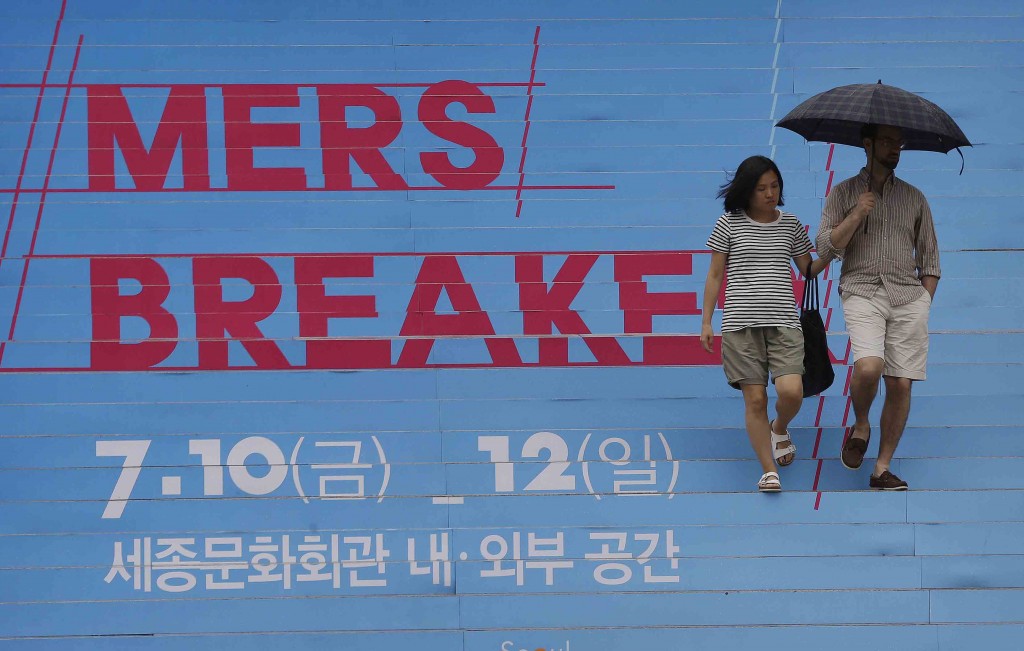- California Assembly OKs highest minimum wage in nation
- S. Korea unveils first graphic cigarette warnings
- US joins with South Korea, Japan in bid to deter North Korea
- LPGA golfer Chun In-gee finally back in action
- S. Korea won’t be top seed in final World Cup qualification round
- US men’s soccer misses 2nd straight Olympics
- US back on track in qualifying with 4-0 win over Guatemala
- High-intensity workout injuries spawn cottage industry
- CDC expands range of Zika mosquitoes into parts of Northeast
- Who knew? ‘The Walking Dead’ is helping families connect
S. Korea reports no new MERS cases for 8th day

A couple passes by letters on the stairs to advertise a festival called “MERS(Middle East Respiratory Syndrome) Breaker” to hope an end to the MERS outbreak at the Sejong Culture Center in Seoul, South Korea, Sunday, July 12, 2015. South Korean letters read ” The Sejong Culture Center. ” (AP Photo/Ahn Young-joon)
SEJONG, July 13 (Yonhap) — The number of people diagnosed with Middle East Respiratory Syndrome (MERS) in South Korea remained unchanged at 186 on Monday as the country has seen no new cases for eight days running, the government said Monday.
The MERS death toll also stayed flat at 36 as the country has reported no fatalities since Friday, according to the Ministry of Health and Welfare.
There were 451 people in isolation as of Monday as suspected cases following possible exposure to the MERS coronavirus, down 34 people from the day before, it said.
Since the country reported its first case on May 20, nearly 16,700 people have been subject to isolation for possible infection. So far, 16,231 of them have been released after showing no symptoms of MERS for more than the known maximum incubation period of 14 days for the disease.
Out of those diagnosed with MERS, 130 have been discharged from hospitals following complete recoveries.
The 20 others remain hospitalized, with four being in unstable condition.
MERS is a viral respiratory disease that is still fairly new to humans. The disease has claimed over 530 lives globally, posting a fatality rate of over 36 percent.
In South Korea, the fatality rate stands at 19.4 percent, with most of the people succumbing to the illness having had underlying medical conditions. The ministry said 91.7 percent of the people who died were being treated for cancer or had serious heart, lung or kidney conditions.
There currently is no vaccine or treatment for the disease that was first reported only in 2012 in Saudi Arabia.
















